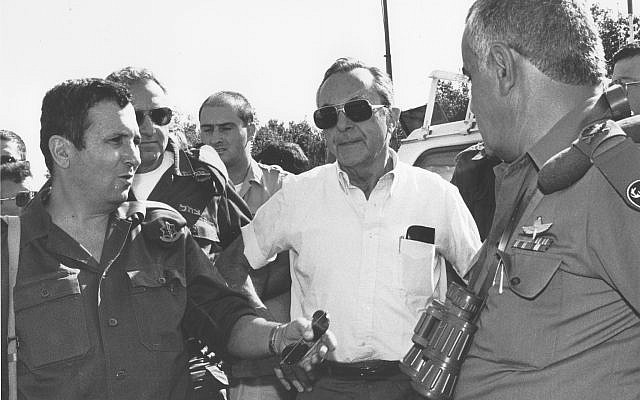by Sergejus Kanovičius
The internet didn’t exist yet, and the way to connect from Israel with parents and friends left in Lithuania was by fax or telephone. There wasn’t a surplus of money and both means were very expensive, so hearing the voice of a loved one was the greatest gift; letters are fine, but human nature it seems is such that we need living emotion, moments which dissolve in the past… When you hear the voice of your Father, or Mother, or grandfather, it feels as if you are with them, much more than reading a letter which has been in transit for a long time. Sometimes the people who helped us in so many ways in saving our son knew the longing for loved ones, they knew what longing means, because they themselves had experienced these separations and knew what they meant. The independency of Lithuania was going slowly, so it was expensive to call from Israel to Lithuania and from Vilnius to Tel Aviv. As I remember it, from Vilnius you longer had to wait for a previously ordered international call, all you had to do was dial 8, wait for the tone and then enter the number. But it wasn’t raining and isn’t raining money anywhere, neither there where rivers of milk flow along banks of honey, nor there where pack-ice gently caresses the banks of the Neris. Sometimes the worst thing you could pull out of the mail box was a nostalgic numerical reminder for some month, sometimes the telephone bills were such that you wanted to take that apparatus to a bank and lock it in the safe.
We lived in a small, one-bedroom apartment on the outskirts of Petah Tikva, to which we moved with the help of Israeli Knesset chairman Dov Shilansky from Šiauliai so we could be closer to the hospital. Besides all the things good people had donated to us–furniture, dishes, a television and other stuff–we also had our nostalgic treatment device with buttons: the telephone. Sometimes we gazed at it longer than we gazed at the dates on the palms outside the window. Sometimes those long glances were successful, and since we couldn’t see the number of the caller, when that rare ring came, my wife and I raced toward the receiver to lift the handset first; both she and I were waiting for calls from relatives.
It was a rainy day in 1992. I don’t remember well what time of the year it was, but I remember the rain. The miraculous device began to ring. I was closest to it.
“Good afternoon,” I heard at the other end of the line.
“Good afternoon,” I said, listening, a little surprised by the unknown voice.
“Am I speaking to Sergey Kanovich?” he asked, and in the background I heard police sirens blaring, and I became even more confused.
“Yes, you are,” I answered, not knowing what was going on. Still listening to the person and sirens on the other end.
“My name is Moshe Arens. I am currently in the car with your father Grigory and I would like to pass the phone over to him, is that fine?”
“Toda, mar Arens,” I thanked him in Hebrew, although I had lost my breath both because of who was calling and because I would now hear my Father’s voice.
I don’t remember the entire conversation with Father, I only remember that he said he was then travelling with the honored guest from Kaunas to Vilnius, and I also remember he apologized that the sirens of the security escort made it so difficult to hear. My Father was the chairman of the Lithuanian Jewish Community then. Only later did he tell me his impressions as he accompanied Moshe Arens, the three-time Israeli defense minister, aviation engineer, member of the Knesset many times over who was born in Kaunas to his dentist mother and his businessman father. It wasn’t an official visit. The Israeli defense minister was in Riga and decided to visit the city of his birth, Kaunas. When he was just one his family went to live in Latvia, whence, thanks to lucky circumstances, they were able to emigrate to the USA in time. This is something so characteristic of all generations in Israel: to know one’s past. Even if you don’t have any memories; what can a one-year-old child remember about Kaunas? But the place of birth is a dear thing in itself. Remembrance of this place, no matter where it is or how it is, is passed on from generation to generation.
One episode from the story my Father told even later stuck with me: Moshe Arens asked to be taken to the Kaunas Jewish cemetery on the Radvilėnų highway where his grandparents were buried. My Father cautioned him he wouldn’t be able to find much there, but the defense minister was determined. They walked among the overturned and desecrated headstones, silent the whole time. Silently they sat back in the car and only after ten minutes had passed Arens sighed, looked at Father and said:
“And I had wrongly thought World War II was over.”
Despite that, if today Moshe Arens or someone else went to that same cemetery, they would find… I don’t even know how to describe it, that which remains of the cemetery after all the barbarism, neglect, lack of love and rough treatment. You can get there now. It has been renovated as much as the funding has allowed. There was a lack of good will there for too long.
The phrase stuck in my head. I remember it often when I visit abandoned and neglected Jewish cemeteries and Jewish mass murder sites with their humble black marble markers, when those haven’t been destroyed.
Moshe Arens was born December 25, 1925, in Kaunas. He died January 7 in Israel. May his memory remain bright. And let’s do something to end World War II.

Defense minister Moshe Arens (center) meets IDF deputy commander general Ehud Barak and southern unit commander general Ytizhak Mordechai, 1991. Photo courtesy of the Israeli Defense Forces archive, Israeli Ministry of Defense.


